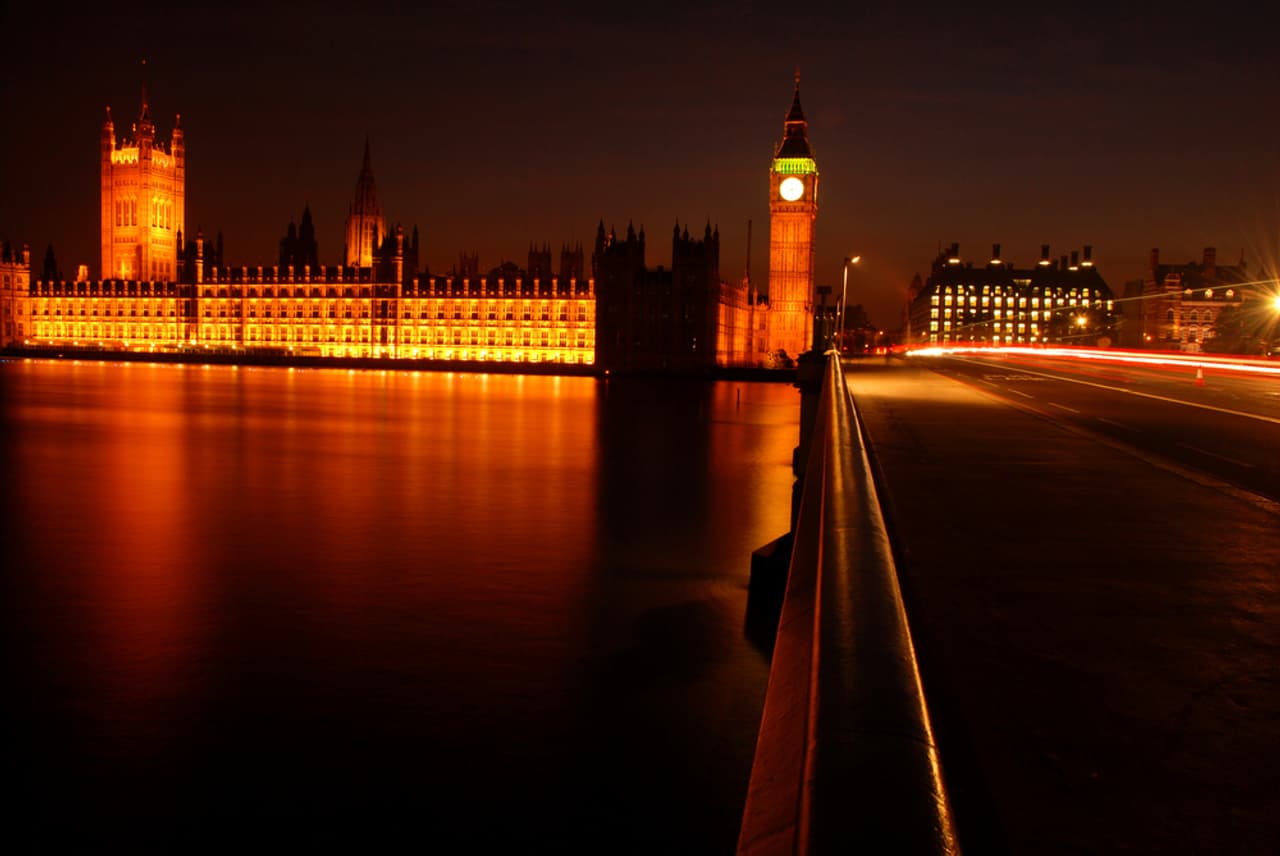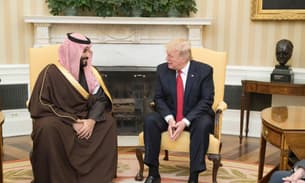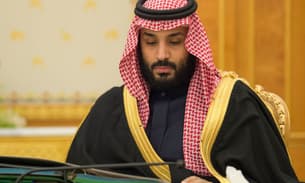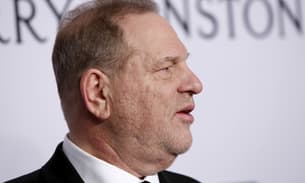
Questions over Lords with time to dine but not debate
A tumbleweed moment at the House of Lords? (image from shutterstock.com)
As radical reform of the House of Lords is set to return for debate by MPs, research by the Bureau of Investigative Journalism and the Independent has identified prominent peers who vote and speak infrequently in the upper chamber.
Lord Parkinson
The former member of Margaret Thatcher’s cabinet and former Conservative Party chairman, has not contributed to a debate in the last decade; neither has he voted this year. He voted on four days in 2011 and claimed a total of £3,600 in attendance allowances.
The peer, a director of two property companies, did sponsor a lunch in the Attlee Room for the Engineering Industries Association last June.
Lord Parkinson was unavailable to discuss why he had not voted more; the Conservative Party said he declined to comment.
Lord Malloch-Brown
Former Labour foreign office minister Lord Malloch-Brown, who has voted once in the last 12 months, in January 2012 and last contributed to a debate in 2010. In September last year he hosted a dinner for 16 guests from FTI Consulting – a firm he chairs – in the Attlee Room.
Lord Malloch-Brown’s attendance record is not known. He declined to comment and took leave of absence from the Lords on Monday.
Baroness Fritchie
Crossbench peer and former civil servant, Baroness Fritchie, has taken part in three debates since her enoblement in 2005. She spoke most recently in 2007. She has not voted in 2012, though she was a frequent voter last year.
In June 2011 she hosted a dinner for the internet registry Nominet, which she chairs. Her attendance record is not known and she was unavailable to comment.
Under proposals likely to be in the Coalition Government’s House of Lords Reform Bill peers who fail to attend for at least 50 per cent of sitting days could be made to stand for re-election.
Members of the House of Lords are not obliged to attend or to engage in debates or to vote if they do. Some do not consider themselves to be full-time politicians and only turn up when areas of interest to them are debated; others spend time sitting on committees in the Lords. Lords’ attendance is not publicly available; the fact that allowances are not claimed does not necessarily mean they have not attended.
Peers whose futures may be uncertain under the proposed reforms include household names such as the Chief Rabbi Lord Sacks, who has never voted according to the Public Whip site, although he has taken part in one debate this year. He declined to comment, but a spokesman pointed out that he had never claimed an attendance allowance.
Lord Heseltine, who was Deputy Prime Minister under John Major, has voted 24 times out of a possible 1429 since his enoblement in 2001 (1.7%). He spoke in one debate in 2012, the first time since joining the Lords in 2001. The Conservative Party said he declined to comment.
The former Labour science minister Lord Sainsbury of Turville, former chairman of the supermarket chain and the current Chancellor of Cambridge University, last took part in a Lords debate in 2007 and has voted once since 2008. He declined to comment.
Crossbencher Lord Hastings, a vice president of UNICEF, voted just three times in 2011 and contributed to one debate. In the same year, Lord Hastings hosted four events in the Lords, including a dinner for 85 people for KPMG, where he is head of citizenship and diversity, and functions for the Good Corporation, Inspire and the Child Brain Injury Trust. He claimed £6,750 in allowances for his attendance in 2011. He declined to comment.
Related article: Bishops paid up to £27,000 for attending parliament
Lord Mogg, the chairman of energy watchdog Ofgem, joined the Lords in 2008 and contributed to a debate on an Energy Bill in that year. He has not since contributed to a debate and has cast 11 votes out of a possible 429. He sponsored a lunch for the Brighton Philharmonic Orchestra in 2011.
Lord Mogg told the Bureau: ‘I have many responsibilities that prevent my attendance in the House. I am chairman of Ofgem the UK Energy Regulator at a time of unprecedented change in Britain’s energy market. In addition I am Chairman of the Agency for the Cooperation of Energy Regulators and the President of the Council of European Regulators. These positions greatly benefit Britain’s influence on the evolution of energy policy, particularly at EU level but they do, unfortunately, take me away from London very frequently.’
He intends to play a ‘much fuller role’ in the Lords from next year, when his chairmanship of Ofgem ends, he said.
Former diplomat Lord Renwick, a vice-chairman of investment bank JP Morgan, has taken part in two debates since 2001; the last time was in 2008. He last voted in 2006.
He hosted a school scholarship event for 180 in the Lords in May 2011. He told the Bureau: ‘If you have a full-time job it’s very difficult to participate effectively. From the end of this year I’ll have ceased to have a full-time job and will be participating regularly.’
Commenting on the event, he said: ‘I hosted a reception for which I paid. People contributed £7,000 for scholarships to St Paul’s junior school, Colet Court.’
Separately, the Liberal Democrat peer Lord Tyler, who is a member of the Committee who has scrutinised the draft proposals, said that reform of the House of Lords was necessary because some peers ‘have only taken the title to assist with charity work, and to upgrade their headed notepaper’.
Related article: Ermine and expenses – an insight into House of Lord
‘We have a ridiculous situation in this country where someone who wants to sit in the Lords is unable to stand and be elected to sit there, while there are hundreds of Life Peers who evidently don’t want to sit in the Lords but have no way of retiring.
‘Various short-term sticking plasters have been suggested, but the fundamental problems with the Lords will not be resolved until the Government’s full Reform Bill is passed.’
A House of Lords spokesman said: ‘Members of the House of Lords are not full-time politicians. They come to Parliament from many walks of life, with backgrounds and busy careers in a wide range of sectors. This means that Members can bring current and topical experience to debates on a range of subjects.
‘A Member might, legitimately, only attend the House, or vote, when there are items of business specifically related to their areas of knowledge and experience. This is particularly true of Crossbench Members, who do not take a party whip and do not have collective policy positions. The system of allowances in the House of Lords ensures Members can only make claims for days they attend the House.’
Related article: House for hire – Lords used to wine and dine clients
Who’s Who
There are 816 members of the House of Lords. This includes 28 on leave of absence, 12 Law Lords and an MEP all of whom do not currently sit. The remaining 775 are made up of:
213 Conservative peers (including 164 Life Peers and 49 Excepted Peers)
231 Labour peers (including 227 Life Peers and 4 Excepted Peers)
90 Liberal Democrat peers (Including 86 Life Peers and 4 Excepted Hereditary Peers)
181 Crossbench peers (including 150 Life Peers and 31 Excepted Hereditary Peers)
34 Other (including 33 Life Peers and 1 Excepted Hereditary Peer)
26 Bishops
The average age of peers as of October 2011 was 69
There are 774 white peers and 42 from ethnic minorities.
Of the 816 peers 181 are women.




